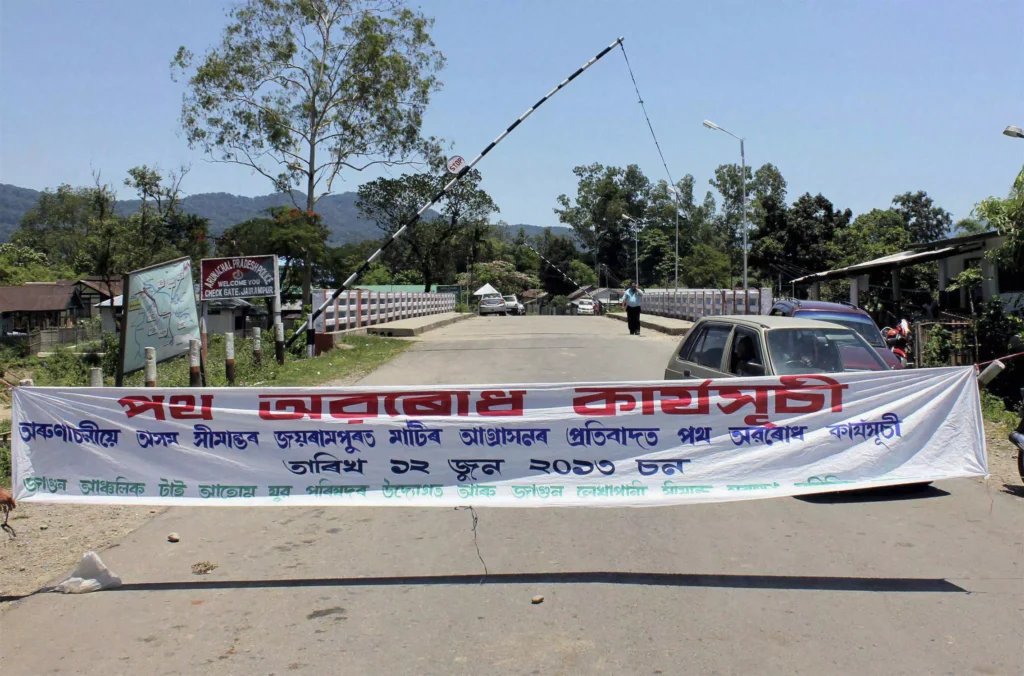Militants launched an attack on a convoy near the Assam-Arunachal Pradesh border, leaving an Army jawan injured and highlighting the persistent security challenges faced by India’s northeastern regions. The incident serves as a grim reminder of the ongoing threat posed by insurgent groups operating in the region and underscores the need for enhanced vigilance and counter-terrorism efforts to safeguard the lives of civilians and security personnel alike.
The attack occurred as a convoy of security forces was traversing the rugged terrain near the Assam-Arunachal Pradesh border, a region known for its dense forests and challenging terrain. Suddenly, militants ambushed the convoy, unleashing a barrage of gunfire and explosives in a brazen attempt to disrupt peace and stability in the area.
As chaos ensued and gunfire echoed through the wilderness, an Army jawan valiantly stood his ground, engaging the militants in a fierce firefight. Despite sustaining injuries in the exchange of fire, the jawan’s courage and determination prevented further casualties and enabled his comrades to repel the attackers and secure the area.
The injured Army jawan was swiftly evacuated and provided with medical treatment, underscoring the military’s commitment to ensuring the welfare and safety of its personnel. His bravery and selflessness serve as a testament to the indomitable spirit of India’s armed forces, who continue to uphold the nation’s security and defend its sovereignty in the face of adversity.
The attack near the Assam-Arunachal Pradesh border serves as a stark reminder of the persistent threat posed by insurgent groups in India’s northeastern states. For decades, the region has been plagued by armed insurgency and separatist movements, fueled by a complex web of historical grievances, ethnic tensions, and political aspirations.
While significant progress has been made in recent years towards restoring peace and normalcy in the region, sporadic incidents of violence continue to occur, underscoring the fragility of the security situation and the challenges inherent in addressing deep-rooted socio-political grievances.
The attack also underscores the importance of maintaining robust security measures and conducting regular counter-insurgency operations to thwart the designs of militant groups seeking to destabilize the region. It serves as a wake-up call for authorities to remain vigilant and proactive in identifying and neutralizing threats before they escalate into larger-scale incidents of violence.
Furthermore, the incident near the Assam-Arunachal Pradesh border highlights the need for greater coordination and intelligence-sharing among security agencies to effectively combat insurgency and terrorism in the region. By pooling their resources and expertise, law enforcement agencies can enhance their ability to anticipate and respond to security threats in a timely and coordinated manner.
In addition to bolstering security measures, efforts must also be made to address the root causes of insurgency and alienation in India’s northeastern states. Economic development, social inclusion, and political dialogue are essential components of a comprehensive strategy to address the grievances of marginalized communities and address the underlying drivers of conflict.
Moreover, the attack near the Assam-Arunachal Pradesh border underscores the need for a multi-pronged approach to counter-terrorism that includes not only military action but also diplomatic initiatives, community engagement, and deradicalization efforts. By addressing the ideological underpinnings of militancy and winning the hearts and minds of the people, authorities can undermine the appeal of extremist ideologies and prevent the radicalization of vulnerable individuals.
As the injured Army jawan recuperates from his injuries, his bravery serves as a poignant reminder of the sacrifices made by India’s armed forces in the defense of the nation. His courage and resilience in the face of adversity inspire confidence and reaffirm the unwavering commitment of India’s security forces to safeguarding the country’s territorial integrity and protecting its citizens from threats, both foreign and domestic.

